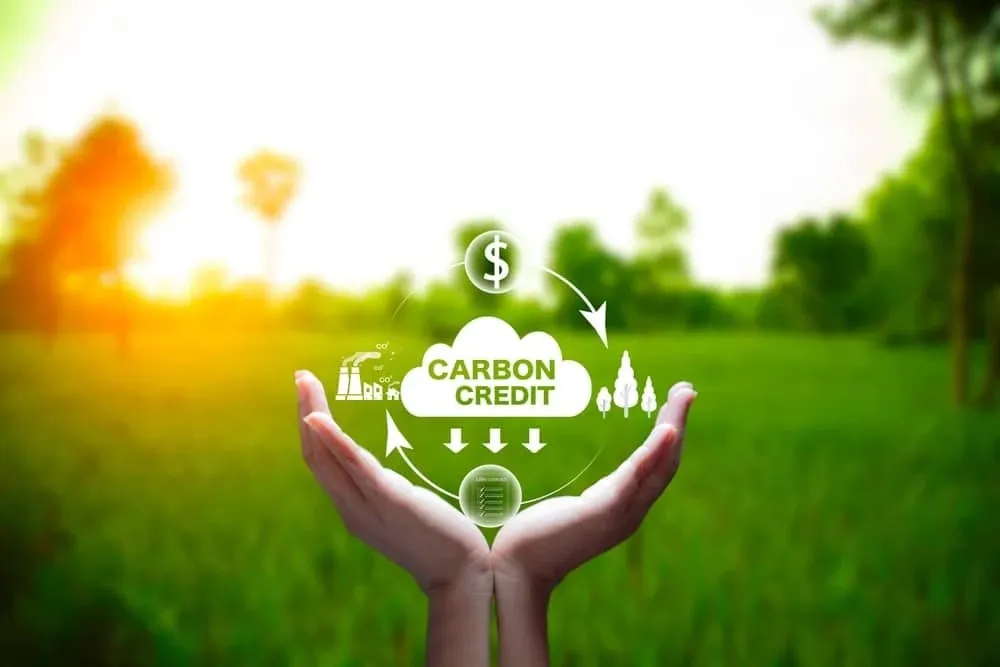
Davis Commodities Limited (Nasdaq: DTCK), a Singapore-headquartered global trader of agricultural commodities, has unveiled its latest initiative to strengthen sustainability practices and ESG integration across its supply chains. The company announced plans to establish a dedicated Carbon Credit Trading Unit that will work to embed certified carbon offsets directly into the company’s premium commodity transactions. This move is part of Davis Commodities’ broader strategy to merge environmental accountability with traceable digital infrastructure, reinforcing its appeal to environmentally focused institutional buyers worldwide.
Pioneering a Carbon-Integrated Trading Ecosystem
As part of its phased ESG roadmap, Davis Commodities aims to introduce carbon-linked trading models across its core product lines—beginning with sustainably certified sugar and rice. The first phase of this initiative will see Bonsucro-certified sugar and ISCC-certified rice shipments coupled with an equivalent volume of verified carbon credits. This integration is designed to help downstream buyers—such as food manufacturers, consumer packaged goods (CPG) brands, and wholesale retailers—offset their supply chain emissions and progress toward net-zero targets.
To ensure credibility and verifiability, the carbon credits Davis Commodities plans to deploy will be sourced from internationally recognized registries, including Gold Standard and Verra. These credits will primarily originate from high-impact reforestation and regenerative agriculture projects, with additional considerations being given to community-based climate mitigation programs in Asia and Africa.
Moreover, the company is evaluating the use of blockchain-based carbon registries to bolster transparency and facilitate immutable tracking of credit origination, ownership, and retirement. In tandem, Davis Commodities is in the early development stages of a proprietary digital dashboard platform. This platform will offer clients real-time visibility into carbon credit allocations associated with their shipments, enabling them to track, audit, and retire credits through an interactive, data-secure interface.
Addressing Emerging Demand in the ESG Economy
The launch of the Carbon Credit Trading Unit comes amid rising pressure on global supply chains to reduce environmental impacts and align with ESG (Environmental, Social, and Governance) metrics. According to Davis Commodities’ internal analysis and industry benchmarks, carbon-integrated agricultural commodity trading represents an estimated $2 billion opportunity over the next three years.
This opportunity is being driven by surging demand from multinational food corporations, sustainability-focused retailers, carbon-neutral logistics providers, and environmentally conscious commodity buyers in key markets across Europe, Asia, and the Americas. Increasing scrutiny over Scope 3 emissions—those related to suppliers and partners—is prompting buyers to look for vendors who can offer built-in solutions for carbon reduction and offsetting.
“Our approach enables buyers to source commodities that not only meet food safety and quality standards but also carry embedded carbon mitigation benefits,” said Ms. Li Peng Leck, Executive Chairwoman and Executive Director of Davis Commodities. “Carbon credits are becoming a critical lever for institutional buyers looking to meet ESG goals and report measurable environmental progress. We see this as both a commercial advantage and a strategic responsibility.”

Phased Rollout and Geographic Priorities
Davis Commodities plans to begin the rollout of its carbon-offset-enabled commodity trades by the end of 2025, starting with EU- and Japan-bound sugar exports. These markets, which have set aggressive decarbonization targets and increasingly require traceable, sustainable sourcing, offer strong initial demand signals for carbon-integrated products.
Following the sugar segment, the company expects to expand into the rice and palm oil sectors, with a focus on high-growth trade routes in Southeast Asia, the Middle East, and West Africa by 2026. Each phase will be tailored to meet regional regulatory requirements, buyer preferences, and certification needs.
In a longer-term move, Davis Commodities is also exploring the possibility of opening its carbon credit platform to external stakeholders, such as independent farmers, cooperatives, and agri-logistics providers. By 2027, this extended platform could enable third-party market participants to integrate carbon credits into their own trade flows using Davis’s digital ecosystem, positioning the company as a regional leader in ESG-integrated trade infrastructure.
Financial Upside and Strategic Positioning
From a financial standpoint, the integration of carbon credits into commodity shipments opens the door to enhanced pricing power and stronger margin profiles. Based on preliminary modeling and third-party data from comparable markets, Davis Commodities estimates that this initiative could generate incremental revenue of $10–$15 million by the end of 2026. This projection is contingent on adoption rates, client readiness, regulatory alignment, and market acceptance of carbon premiums.
“Carbon-linked trades represent a high-margin opportunity in an increasingly competitive market,” added Ms. Li Peng Leck. “For us, this is not just a sustainability initiative—it is a commercially strategic decision that aligns with our vision of innovation-led growth and value creation for shareholders and partners.”
The move also complements the company’s exploration of digital solutions, including blockchain-enabled traceability tools, smart contract execution, and tokenized commodity transactions. Davis Commodities has recently begun evaluating Solana-based digital reserve models as part of its research into distributed ledger technologies and decentralized trade finance systems.
Enhancing Market Visibility Through ESG Alignment
By integrating carbon offset capabilities directly into its certified commodity offerings, Davis Commodities strengthens its position in emerging ESG finance and impact investment ecosystems. The initiative aligns the company with fast-growing capital market themes such as “carbon credit trading,” “net-zero supply chains,” “ESG-aligned agriculture,” and “voluntary carbon markets.”
This evolution enhances Davis Commodities’ brand visibility and investor appeal, especially among stakeholders seeking exposure to the intersection of climate finance, food security, and digital transformation. The Carbon Credit Trading Unit is expected to operate as a standalone business line under Davis’s existing ESG and innovation leadership structure, with dedicated resources for sourcing, certification, buyer engagement, and platform development.




